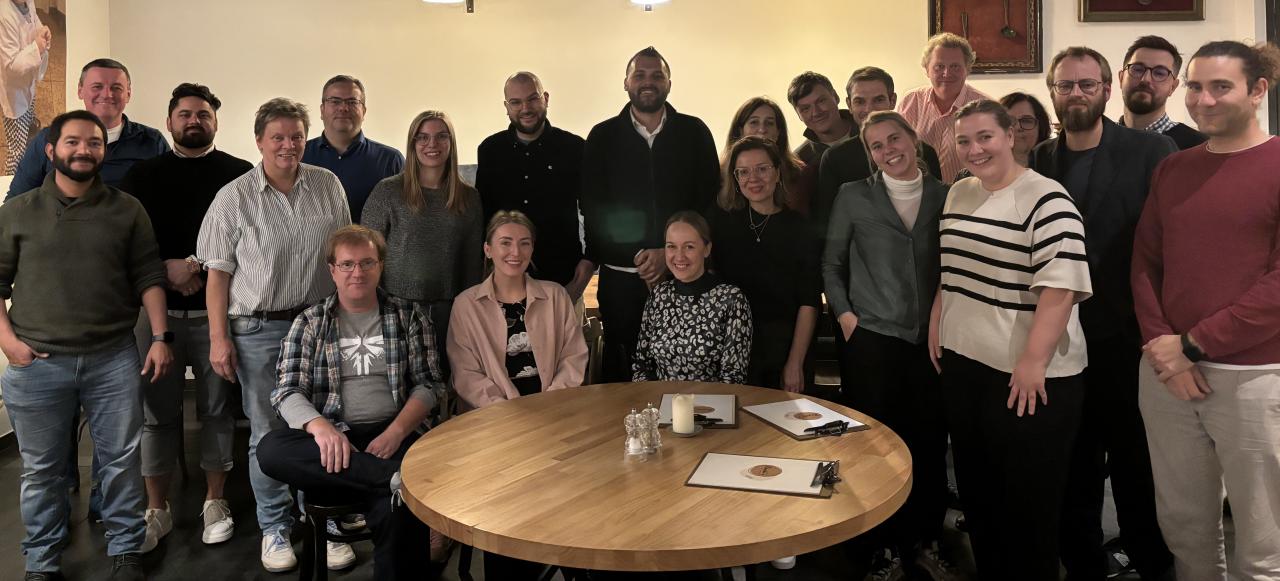During this first transnational meeting, the network collaboratively set the course for the future, by learning more about each other's context and finalising the network's roadmap. The various activities, from masterclasses and interactive workshops to study visits, contributed to a rich exchange of experiences and knowledge.
Getting to know the network partners
The meeting kicked off in Genk, lead partner of the Agents of Co-Existence network. The super diverse city of Genk, with approximately 67,000 residents from more than 100 nationalities and nearly 58% having a migration background, aims to evolve into a cosmopolitan city where everyone feels at home, regardless of their ethnicity, nationality, identity, gender, or orientation.
On Monday morning, the network was warmly welcomed by the Mayor of Genk. The first day of our network meeting was dedicated to gaining a deeper understanding of each partner's context. We caught a glimpse of some of the good practices, challenges and learning needs that each project partner brings to the network during a vibrant marketplace. Subsequently, we matched these learning needs with the core themes of the network and jointly finalised our Network’s Roadmap.
AoCE@School: Deliberative and participatory processes
On Tuesday morning we organised our first AoCE@SCHOOL. The University of Ghent provided an insightful masterclass on participatory and deliberative democracy and how different actors perceive this form of participation. This theoretical exploration was enriched with a practical example from Genk, showing the deliberative process of 'The 22', in which the city engaged in a meaningful dialogue with a representative group of 22 residents, established through a two-stage sorting process. Despite the participants' different perspectives and experiences, the aim of 'The 22' was to discover common ground to improve coexistence in the super diverse Genk community. This deliberative dialogue resulted in the formulation of 4 Genker habits, which indicate how the people in Genk want to live together and what they expect from each other.
Study visits in Genk
In the afternoon, we visited the StiemerHUB, where we learned more about the projects around the Stiemervalley. With these projects, the city wants to develop the area around Genk's 8-kilometre-long watercourse to "create nature", based on the belief that nature creates solutions and has social, economic and ecological value. The idea is to connect nature with people, people with the city and the city with nature. The city of Genk is actively involved in the creation and development of nature areas and encourages citizens to organise their own activities and participate in municipal initiatives. To encourage actions that benefit both the city and its citizens, "Stiemer Deals" were created. In these, they are experimenting with dynamic and inspiring co-creations between the city and its citizens.
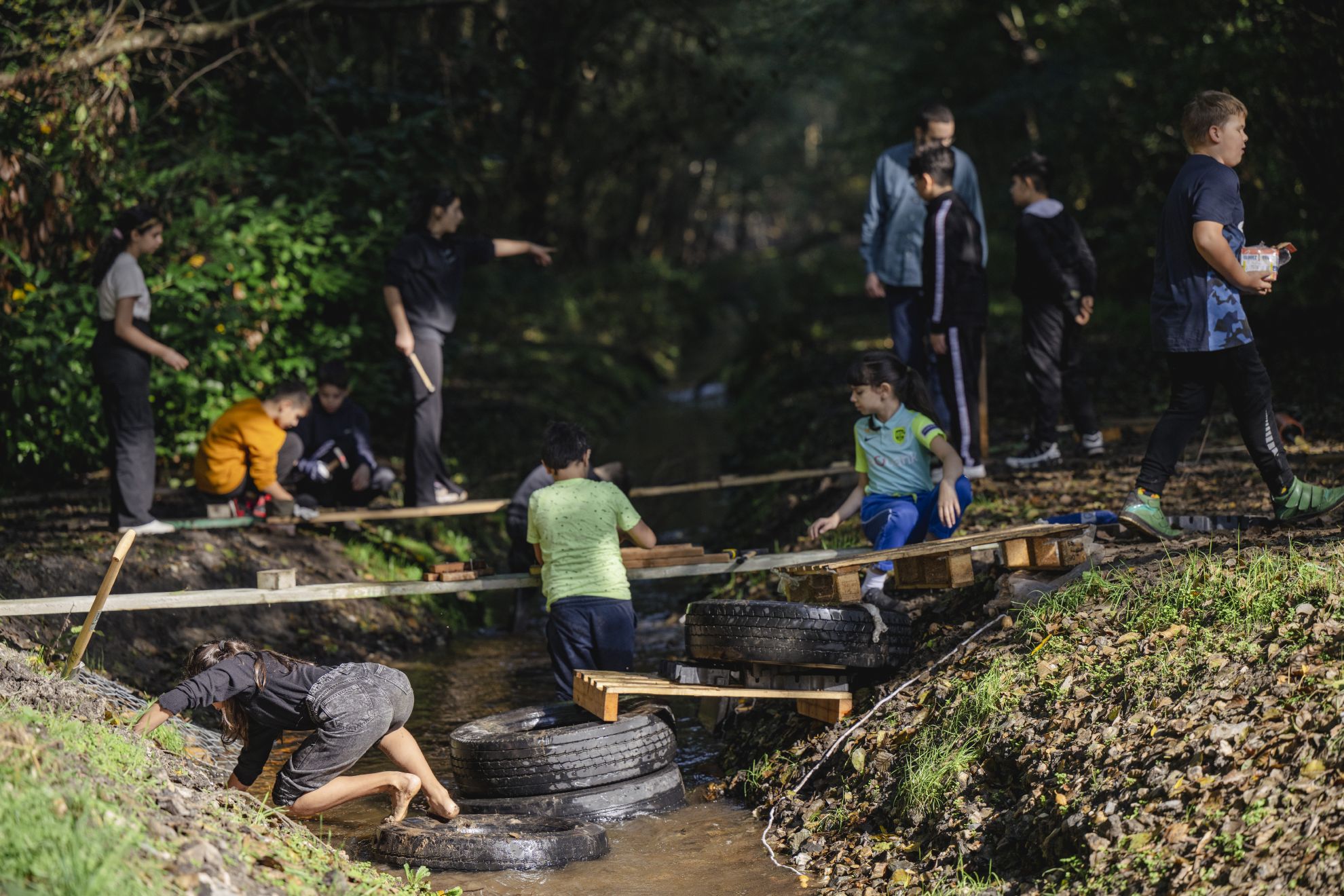
After this, we moved on to the community centre of Winterslag (a district in the city of Genk) where we gained valuable insights into Genk's integrated, neighbourhood-oriented approach. We zoomed in on the role of the neighbourhood manager in applying a place-based approach to neighbourhood development, with an emphasis on civic engagement. Their main objective is to improve social cohesion by fostering a sense of community, with a commitment to promoting participation, co-creation and civic initiatives within a collaborative environment. This role as a civil servant requires a nuanced understanding of social issues and the ability to build strong relationships within the community. The neighbourhood manager oversees and actively contributes to the balanced development of neighbourhoods, striving for inclusive and sustainable growth.
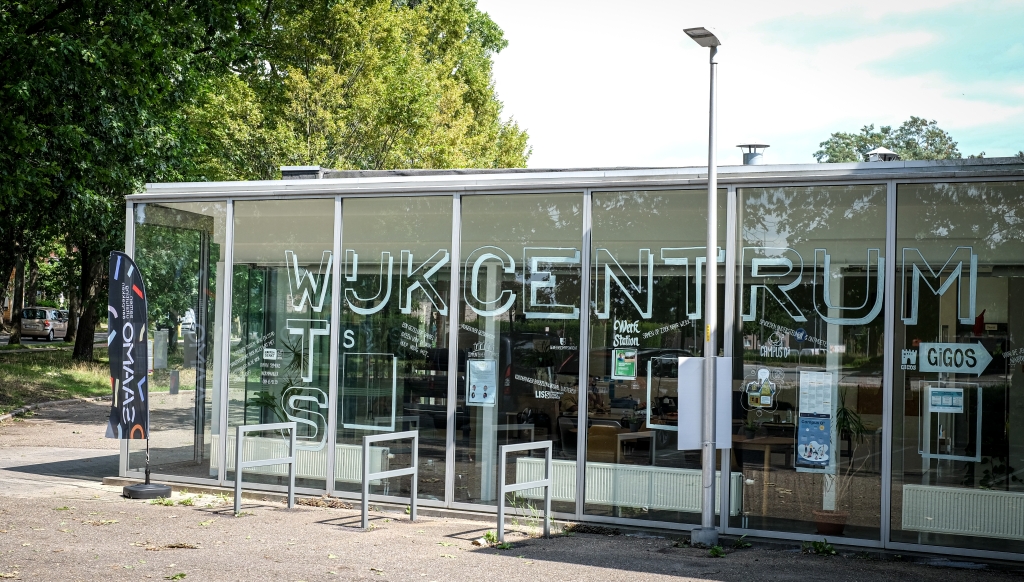
Study visits in Breda
On Wednesday morning, we left early by bus to visit the historic mid-sized municipality of Breda, home to approximately 186,000 residents. The visit to the city of Breda was a busy and enriching experience, filled with insightful and diverse activities. These ranged from presentations on how Breda facilitates constructive collaboration with NGO’s, to a city tour highlighting how street art contributes to social cohesion and the creation of a welcoming urban environment.
The meeting in Breda commenced with a warm welcome at the municipality's city hall, where the network received an introduction to the city, including historical facts and unique aspects. Subsequently, there was a presentation on Breda's innovative approach known as "waardennetwerken," translated as value networks. In these networks, all Breda partners, including the municipality, collaborate on topics in the Social Domain. Together, they formulate action plans to efficiently deploy financial resources, ensuring inclusivity, a comprehensive range of services, and the avoidance of overlapping activities to maximize impact on the city.
Following the welcome and initial presentations, the group moved within the city hall to the extra-secure Safety Department. Here, they were welcomed into the "beeldkamer" or image room. The Safety Department team leader provided information on Breda's digital twin, allowing real-time monitoring of changes in crowd density or the locations of shared scooters. This data is then analysed and compared with residents' needs to enhance the city's safety.
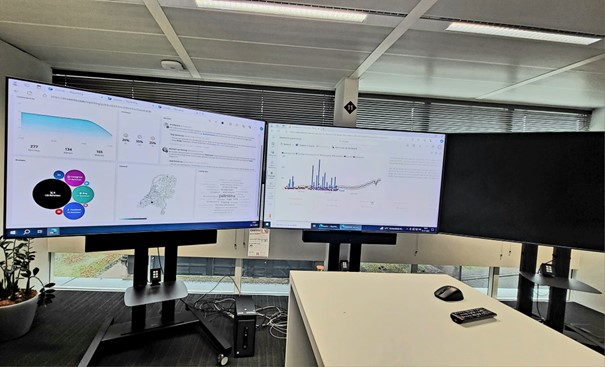
After the visit to the image room, the last presentation within the city hall focused on the "Verbeter Breda" initiative, translating to Improve Breda. This initiative, initiated by the municipality with the intention of becoming an independent foundation, aims to increase equal opportunities for young residents in areas where disparities exist. Verbeter Breda actively collaborates with residents, tailoring its approach to each specific neighbourhood, recognising the unique needs of each community.
After spending a significant amount of time indoors, the group moved through the city center. Guided by a historical city guide, they explored various historical highlights, with a focus on past collaborations between residents and the city.
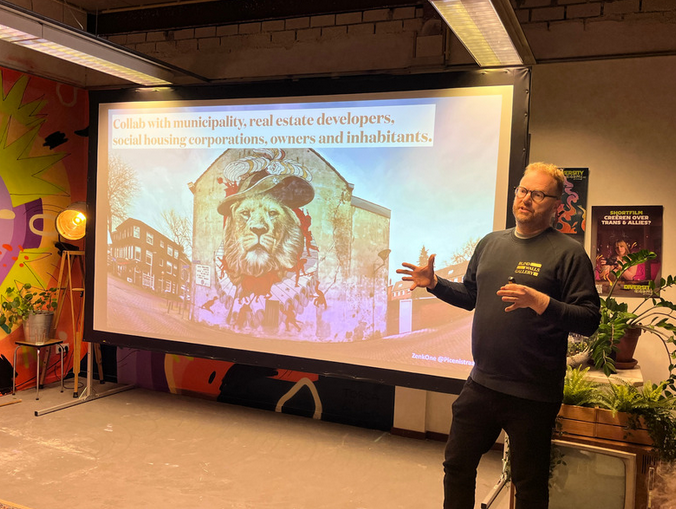 Arriving at the last location, the group was welcomed into a unique office by the Bo Diversity Foundation. Bo Diversity advocates for increased awareness around sexuality and gender. On behalf of the municipality, the foundation manages a reporting point for street harassment, enabling the city to formulate better policies or take actions in specific locations. The presentation emphasised the importance of diversity and inclusion, addressing societal upbringing with stereotype roles, and promoting understanding.
Arriving at the last location, the group was welcomed into a unique office by the Bo Diversity Foundation. Bo Diversity advocates for increased awareness around sexuality and gender. On behalf of the municipality, the foundation manages a reporting point for street harassment, enabling the city to formulate better policies or take actions in specific locations. The presentation emphasised the importance of diversity and inclusion, addressing societal upbringing with stereotype roles, and promoting understanding.
To conclude the day, there was a tour of The Blind Walls Gallery. This initiative transforms blank walls and unused spaces in the city into open-air art galleries. Collaborating with local and international artists, they create murals that beautify the city and serve as a platform for artistic expression. The process involves working with local residents, collecting unique stories from the neighbourhood and the location's history, creating a collaborative mural that tells a piece of the city's history through participation.
AoCE@SCHOOL: Innovation and change is exciting
On the last day, the group gathered at the historic city hall on Breda's grand marketplace. In the city council chamber, they received a seminar from Transitie Focus, a company emphasising the importance of innovation and how understanding others and strategically using structures can drive change within an organisation. The central theme was that change is exciting. The interactive masterclass demonstrated individual differences in approaching and handling tasks through motion. They also gave insights into a participation process conducted for another municipality, using several rounds where participants were confronted with different opinions in each round, stimulating a process of learning from each other's perspectives.
The visit to Genk and Breda concluded with remarks from the Mayor of Breda. It was a busy yet enlightening program, packed with inspiration and plenty of opportunities for meaningful innovations in the future.

